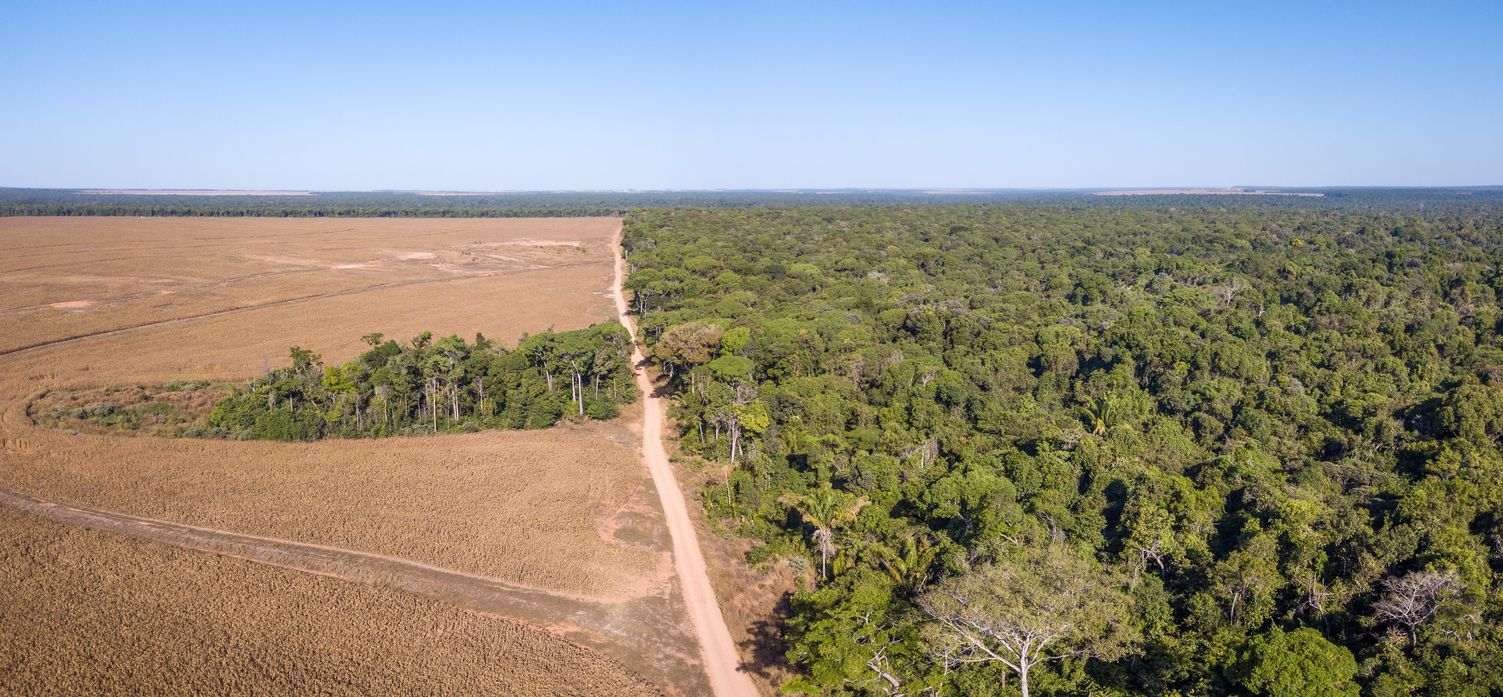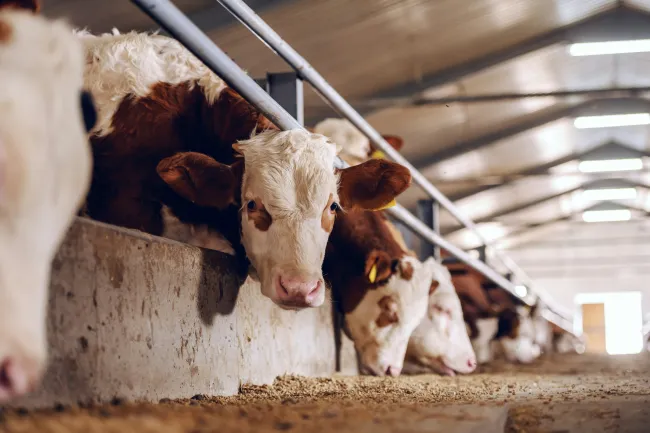
Areas
Over many years of research, we have developed expertise in many sustainability and social justice-related areas. Select your area of interest to learn more on how we are providing our clients with the information they need to make effective choices and bring about change.
Forests & Finance
Profundo participates in the Forests & Finance coalition of civil society organisations from tropical forest countries and abroad, who are collaborating to convince financial institutions to use their financial leverage over forest-risk sectors by adopting and implementing strict ESG policies and due diligence systems. Based on Profundo research, the Forests & Finance website offers a database on the finance received by over 300 companies directly involved in the beef, palm oil, pulp and paper, rubber, soy and timber supply chains, whose operations may impact natural tropical forests. Additionally, Forests & Finance provides a rigorous assessment of the credit and investment policies of the 100 largest financiers found in our financial research.

Themes
Click on a theme below to see related projects
For more info contact

Ward Warmerdam
Senior Financial Researcher
Ward coordinates our research on the financing of companies by various types of financial institutions. He is a sinologist with a background in economics, politics and international relations, a.o. in China.
Plastics
Plastics are exacerbating the climate crisis, as 99% of this once-so-lauded material is made of fossil fuels. Most of the plastic products are burned after a short (often single-use) product life, releasing greenhouse gas emissions into the atmosphere. The production and disposal of plastics also has negative impacts on nature and biodiversity and on the health of consumers and local communities living near production facilities. Profundo analyses which petrochemical companies, consumer goods companies and retailers play an important role in the plastics life cycle, and assesses their options to help reduce the production and consumption of plastics. To mobilise the leverage of the financial sector to solve the plastics problem, we identify the financiers of companies in different stages of the plastics life cycle and we assess their policies against international agreements on climate change, nature, health and against general Corporate Social Responsibility standards. Also, we analyse options for corporate actors and public bodies to address the plastics problem.

Themes
Click on a theme below to see related projects
For more info contact

Manon Stravens
Supply Chain Researcher
Manon works on topics ranging from plastics to agricultural commodities and minerals. She also coordinates our expert views. Manon is a journalist with a background in development who previously worked for ICCO Cooperation in Mali.
Community rights
In our research projects, we document which companies are involved in violating the rights of local communities and who is financing their activities. We assess which financiers require the companies they finance to respect the rights of local communities to give or withhold Free, Prior and Informed Consent (FPIC) whenever they could be affected by planned operations. We critically analyse market initiatives such as carbon offsets as well as the policies of governments and development finance institutions (DFIs). And we explore which policies and market arrangements would protect the rights and livelihoods of communities across the world.

Themes
Click on a theme below to see related projects
For more info contact

Juliette Laplane
Senior Policy Researcher
Juliette originates from France and specialises in sustainable finance. She supports civil society organisations in shaping strategies to influence the financial sector by providing policy research. Additionally, she delivers trainings on various sustainability topics. Previously, Juliette worked for an ESG rating agency and in the banking sector. She holds a background in Finance.
Oceans
Threats to biological diversity in the ocean abound as commercially targeted species are overfished and fishing methods remain indiscriminate against non-targeted species. The shipping sector causes pollution and disturbance, and industrial, mining, energy and residential activities in coastal areas are also a cause of concern. The recent interest in deep seabed mining (DSM) poses a further threat, as it could have irreversible impacts on deep ocean ecosystems by altering the delicate balance between sediments, nutrients and living organisms. DSM is also likely to impact the carbon storage ability of the deep sea, which is the biggest carbon storage area on the planet. Profundo researches which companies are involved in the seafood supply chain, in shipping, deep seabed mining and in other activities which have negative impacts on the oceans. And we assess the policies of financial institutions which are relevant for the protection of this biome.

Themes
Click on a theme below to see related projects
For more info contact

Barbara Kuepper
Senior Researcher Sustainable Supply Chains
Barbara coordinates market research and the analysis of trade relationships in international supply chains. She has a background in physical geography and previously worked at Greenpeace International in Germany.
Sustainable Finance
We analyse and benchmark responsible credit and investment policies of financial institutions from all over the world. These assessments are often using the Fair Finance Guide Methodology that we have developed together with civil society organisations from Africa, Asia, Europe and Latin America collaborating in Fair Finance International. This methodology is based on international standards and initiatives on a wide range of sustainability topics. We also develop bespoke methodologies to investigate what banks and investors from across the world are doing in practice to ensure that the companies they invest in or finance are living up to international standards, in terms of screening, engagement, voting and exclusion. And we look at financial regulations across the world which stimulate or require financial institutions to integrate sustainability criteria in financing and investment portfolios.

Themes
Click on a theme below to see related projects
For more info contact

Juliette Laplane
Senior Policy Researcher
Juliette originates from France and specialises in sustainable finance. She supports civil society organisations in shaping strategies to influence the financial sector by providing policy research. Additionally, she delivers trainings on various sustainability topics. Previously, Juliette worked for an ESG rating agency and in the banking sector. She holds a background in Finance.
Just Energy Transition
To stimulate a just energy transition, we research the corporate strategies of companies in crucial sectors (energy, transport, livestock and others), to estimate the climate damage they cause and the financial means they have to transition faster. We analyse financial flows to energy sources and technologies that contribute to the climate crisis or that offer solutions. This makes it possible to assess if financial institutions shift their financings in line with a 1.5 °C scenario and if the conditions they set for their investments in new energy sources ensure a just transition. Also, we evaluate how government policies hinder or encourage corporate and financial players to work towards a just energy transition.

Themes
Click on a theme below to see related projects
For more info contact

Ward Warmerdam
Senior Financial Researcher
Ward coordinates our research on the financing of companies by various types of financial institutions. He is a sinologist with a background in economics, politics and international relations, a.o. in China.
Food systems
Understanding the power dynamics and profit distributions in food supply chains is crucial to assess how food systems can be transformed in order to address all different challenges they are facing. Against this background we analyse government policies as well as voluntary certification schemes and procurement policies (such as NDPE policies) in global commodity supply chains. What different stakeholders can do to accelerate the transition from animal proteins (meat and dairy) towards plant-based proteins is one of our crucial areas of research.

Themes
Click on a theme below to see related projects
For more info contact

Barbara Kuepper
Senior Researcher Sustainable Supply Chains
Barbara coordinates market research and the analysis of trade relationships in international supply chains. She has a background in physical geography and previously worked at Greenpeace International in Germany.
Migration
More than ever, industrialized countries need fair, humane, and effective migration policies. We will continue to critically analyse the use of public funds to contribute to a more fair, humane and effective European migration policy and to achieve more transparency over public expenditure and public decision making. Also, our research investigates under which conditions migrants are exploited in agricultural commodity supply chains within Europe.

Themes
Click on a theme below to see related projects
For more info contact

Estela Casajuana
Senior Researcher
Estela originates from Spain and leads our research on migration and human rights issues. She has a background in international human rights law, with a specific focus on the human rights’ impacts of corporate activities in Spain and the UK.
Mining and Money
In the Mining & Money initiative, Profundo collaborates with civil society organisations to identify the role of financial institutions in driving the expansion of the mining sector, in particular driven by the demand for transition minerals. The Mining & Money website will create transparency on the financiers of mineral mining, their ESG policies and links to environmental and human rights abuses. Local civil society organisations (CSOs) working in Latin America, Africa and Asia on community and environmental issues can help to highlight the negative impacts of the mining industry. These organisations engage with their local financial institutions and collaborate with international NGOs engaging with financial institutions in North America and Europe, among others, to develop and implement strong ESG risk mitigation policies that ensure the protection local communities and environments.

Themes
Click on a theme below to see related projects
For more info contact

Ward Warmerdam
Senior Financial Researcher
Ward coordinates our research on the financing of companies by various types of financial institutions. He is a sinologist with a background in economics, politics and international relations, a.o. in China.
Arms and conflicts
To avoid that uncontrolled arms supplies exacerbate and prolong armed conflicts, the weapons sector needs to be brought under much stricter control of democratic governments. Simultaneously, the production and maintenance of controversial weapons (nuclear weapons, chemical weapons and cluster munition) needs to be finished. In our research, we focus especially on which arms companies are involved in controversial weapons and in irresponsible weapons supplies (for instance to undemocratic regimes). And we analyse which banks and investors play a role in enabling the activities of such companies, and which financial institutions have excluded such companies from financing.

Themes
Click on a theme below to see related projects
For more info contact

Jim Sanchez
Financial Researcher
Jim originates from Colombia and works on retrieving and analysing financial data from companies involved in unsustainable practices. Jim is an economist with a passion for finance, risk analysis, econometrics, banking and optimisation.
Chain Reaction Research
The financial sector increasingly recognizes that stopping deforestation constitutes an important part of their climate change policies. Profundo, as part of the Chain Reaction Research (CRR) programme, supported this shift for the past 10 years by translating sustainability risks into material business risks, monitoring deforestation, shaping policy debates, and developing tools to leverage the role of financial institutions as shareholders and capital providers. While the CRR programme has stopped, we continue to use these same approaches and methodologies to produce in-depth sustainability and financial risk analyses on critical companies in deforestation-risk commodity supply chains.

Themes
Click on a theme below to see related projects
For more info contact

Gerard Rijk
Senior Equity Analyst
Gerard coordinates our equity research on companies active in international commodity chains and finance. He is a macroeconomist and has worked for the Dutch bank ING.
Labour and gender
We assess how corporate practices, including procurement policies, impact the position of women and other marginalised groups in global supply chains. Additionally, we analyse how financial institutions address these issues in their credit and investment policies. Our research always integrates a gender- and human rights-based approach, prioritising strategies that address inequalities in power distribution and discriminatory practices, with a particular focus on the most vulnerable populations.

Themes
Click on a theme below to see related projects
For more info contact

Chithira Rajeevan
Policy Researcher
Chithira researches the sustainability policies of companies and financial institutions. She also works on themes such as labour rights and human rights. She has a background in development economics and has previously worked in a public policy think tank in India.
Market regulation
In the complex and evolving movement towards sustainable market regulation and Corporate Social Responsibility (CSR) in the corporate and financial world, both private-sector and public policies play important and inter-linked roles. In the field of private-sector policies, we analyse and benchmark responsible credit and investment policies of financial institutions from all over the world, often using the Fair Finance Guide Methodology. We also analyse voluntary certification schemes and procurement policies (such as NDPE policies) in global commodity supply chains. The public policies of various governments which we analyse deal with market regulation, industrial policy and innovations in many different economic and commodity sectors.

Themes
Click on a theme below to see related projects
For more info contact

Pavel Boev
Supply Chain Researcher
Pavel looks into global supply chains, analysing trading links and sustainability issues. Previously, he worked in the banking sector and at WWF Russia.
Animal welfare
Animal welfare issues are most prevalent in the intensive livestock farming sector, in which animals are kept in conditions that interfere with their ability to express their natural behaviour. Due to population growth and changing consumption patterns in emerging markets the worldwide demand for livestock products - meat, dairy products, eggs - is increasing rapidly. Further intensification of livestock production will almost certainly result in the suffering of even more animals. Other sectors in which animal welfare is often disrespected, are intensive aquaculture, the pharmaceutical and cosmetics industries making use of laboratory animals, the fashion and furniture industries using fur and exotic leather and the recreation and entertainment industry. We provide insights into who finances industries in which animal welfare is often disrespected, such as the intensive livestock farming sector where issues are most prevalent, as well as analysing the policies of financial institutions that have chosen to fund these sectors, sometimes contradicting their own commitments to animal welfare.

Themes
Click on a theme below to see related projects
For more info contact

Debbie Schepers
Policy Researcher
Debbie researches the sustainability policies of companies and financial institutions. She has a background in international development studies and environmental policy. Previously, she researched the public RBC policies of national governments, and has worked in academia in the Netherlands.
Taxes and subsidies
We research the tax planning structures set up by multinational enterprises and we assess how financial institutions deal with the tax avoidance practices of their clients and investees. Also, we look at government tax exemptions and subsidies to support large corporations, which in many cases lead to fossil subsidies. And we support proposals for more effective tax policies by assessing the amount of taxable income generated by certain companies and sectors.

Themes
Click on a theme below to see related projects
For more info contact

Jan Willem van Gelder
Director
Jan Willem has a broad experience in financial, policy and trade research and consulting, focusing on corporate impacts on sustainability. He studied development economics and founded Profundo in 2000.
Built Environment
Home, offices, shops and other buildings shape and affect daily life, as they form the settings in which we live, work, and have social interactions. At the same time, the built environment plays a pivotal role in global sustainability efforst as its embodied and operational emsissions account for a significant share of greenhouse gas emissions globally. Moreover, the construction sector is characterised by high resource consumption and is a significant source of waste. Meeting the goals of the Paris Agreement requires a rapid transition toward a low-carbon, climate-resilient and nature-positive built environment, but environment sustainability alone is not enough. To build a truly liveable, inclusive and just environments, it is equally important to ensure equitable access to housing, uphold fair working conditions, and enable long-term affordability and soical value for residents. Profundo analyses how different goverment policies and regulations support a sustainable transition in the built environment. We also identify the major corporate players in this sector and assess how far they take their responsibility for the steps that are necessary, and we support civil society organisations in different countries to hold these corporate players to account.

Themes
Click on a theme below to see related projects
For more info contact

Barbara Kuepper
Senior Researcher Sustainable Supply Chains
Barbara coordinates market research and the analysis of trade relationships in international supply chains. She has a background in physical geography and previously worked at Greenpeace International in Germany.